Ford Transit Transporter VS Tesla Model 3 – Specs, Efficiency & Price Comparison
Which model is the better choice – the Ford Transit Transporter or the Tesla Model 3? We compare performance (269 HP vs 627 HP), boot capacity ( vs 594 L), efficiency (21.30 kWh7.90 L vs 13.20 kWh), and of course, the price (39900 £ vs 34300 £).
Find out now which car fits your needs better!
The Ford Transit Transporter (Cargo Van) is powered by a Diesel or Electric engine and comes with a Manuel or Automatic transmission. In comparison, the Tesla Model 3 (Hatchback) features a Electric engine and a Automatic gearbox.
When it comes to boot capacity, the Ford Transit Transporter offers , while the Tesla Model 3 provides 594 L – depending on what matters most to you. If you’re looking for more power, you’ll need to decide whether the 269 HP of the Ford Transit Transporter or the 627 HP of the Tesla Model 3 suits your needs better.
There are also differences in efficiency: 21.30 kWh7.90 L vs 13.20 kWh. In terms of price, the Ford Transit Transporter starts at 39900 £, while the Tesla Model 3 is available from 34300 £.
Compare all the key specs now and find out which model fits your lifestyle best!
Ford Transit Transporter
The Ford Transit Transporter has long been a staple in the commercial vehicle sector, renowned for its reliability and versatility. It offers a comfortable cabin with a modern design that enhances the driving experience, making long journeys more enjoyable. With a focus on practicality, the Transit provides ample cargo space, meeting the demands of businesses and individual users alike.
details @ media.ford.com
@ media.ford.com
 @ media.ford.com
@ media.ford.com
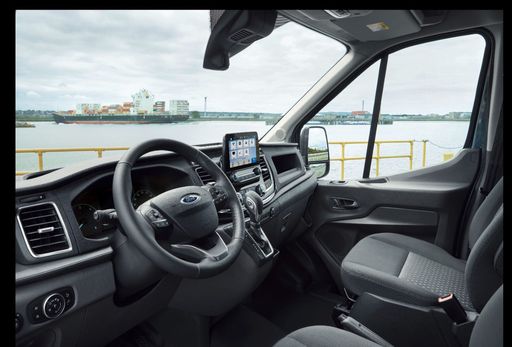 @ media.ford.com
@ media.ford.com
Tesla Model 3
The Tesla Model 3 stands out in the electric vehicle market with its sleek design and impressive performance capabilities. It offers a seamless driving experience that combines advanced technology with minimalistic interiors, creating a futuristic feel on the road. Additionally, its range and charging infrastructure make it a practical choice for both city commuting and longer journeys.
details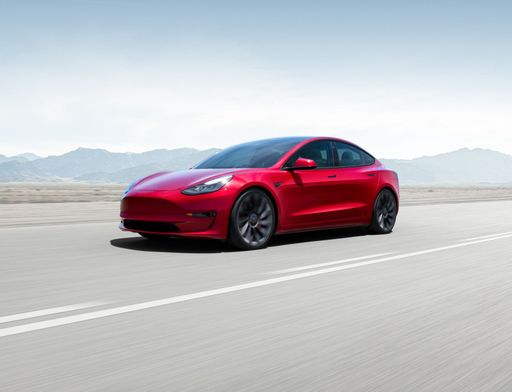 @ tesla.com
@ tesla.com
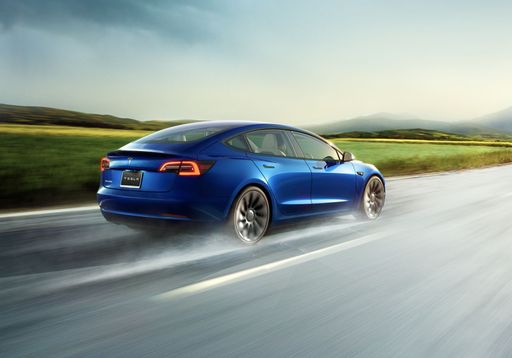 @ tesla.com
@ tesla.com
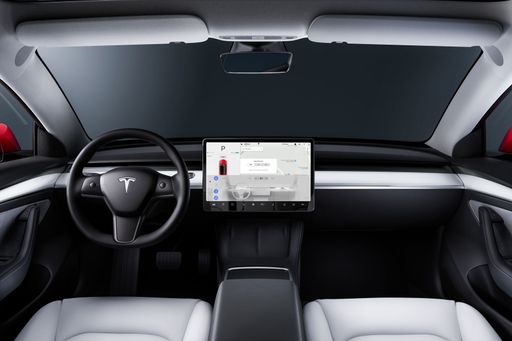 @ tesla.com
@ tesla.com
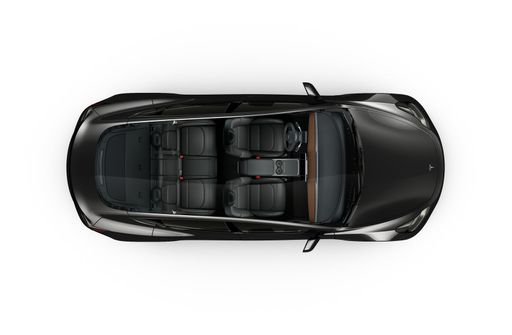 @ tesla.com
@ tesla.com

|

|
|
|
|
Costs and Consumption |
|
|---|---|
|
Price
39900 - 69100 £
|
Price
34300 - 50100 £
|
|
Consumption L/100km
7.9 - 10.3 L
|
Consumption L/100km
-
|
|
Consumption kWh/100km
21.3 - 32 kWh
|
Consumption kWh/100km
13.2 - 16.7 kWh
|
|
Electric Range
247 - 317 km
|
Electric Range
513 - 702 km
|
|
Battery Capacity
68 kWh
|
Battery Capacity
62 - 79 kWh
|
|
co2
0 - 270 g/km
|
co2
0 g/km
|
|
Fuel tank capacity
70 L
|
Fuel tank capacity
-
|
Dimensions and Body |
|
|---|---|
|
Body Type
Cargo Van
|
Body Type
Hatchback
|
|
Seats
3 - 6
|
Seats
5
|
|
Doors
4
|
Doors
5
|
|
Curb weight
2074 - 2765 kg
|
Curb weight
1822 - 1929 kg
|
|
Trunk capacity
-
|
Trunk capacity
594 L
|
|
Length
5531 - 6704 mm
|
Length
4720 - 4724 mm
|
|
Width
2059 mm
|
Width
1850 mm
|
|
Height
2530 - 2778 mm
|
Height
1431 - 1440 mm
|
|
Payload
735 - 2607 kg
|
Payload
303 - 333 kg
|
Engine and Performance |
|
|---|---|
|
Engine Type
Diesel, Electric
|
Engine Type
Electric
|
|
Transmission
Manuel, Automatic
|
Transmission
Automatic
|
|
Transmission Detail
Schaltgetriebe, Automatikgetriebe
|
Transmission Detail
-
|
|
Drive Type
Front-Wheel Drive, Rear-Wheel Drive, All-Wheel Drive
|
Drive Type
Rear-Wheel Drive, All-Wheel Drive
|
|
Power HP
105 - 269 HP
|
Power HP
283 - 627 HP
|
|
Acceleration 0-100km/h
-
|
Acceleration 0-100km/h
3.1 - 6.1 s
|
|
Max Speed
120 km/h
|
Max Speed
201 - 262 km/h
|
|
Torque
310 - 430 Nm
|
Torque
420 - 660 Nm
|
|
Number of Cylinders
4
|
Number of Cylinders
-
|
|
Power kW
77 - 198 kW
|
Power kW
208 - 461 kW
|
|
Engine capacity
1995 cm3
|
Engine capacity
-
|
General |
|
|---|---|
|
Model Year
2019 - 2024
|
Model Year
2023 - 2024
|
|
CO2 Efficiency Class
G, A
|
CO2 Efficiency Class
A
|
|
Brand
Ford
|
Brand
Tesla
|
Ford Transit Transporter
Discovering the Ford Transit Transporter: A Blend of Tradition and Innovation
The Ford Transit Transporter has long been a staple in the commercial vehicle market, known for its reliability and versatility. As Ford continues its innovative journey, the Transit Transporter integrates modern technology and eco-friendly advancements, making it more appealing than ever. Here, we explore some of its key technical details and innovations.
Under the Bonnet: Engine Variants and Efficiency
The Ford Transit Transporter offers a variety of engine options to cater to diverse commercial needs. Among these, the 2.0 EcoBlue Diesel engine provides a robust selection of power outputs, ranging from 105 to 165 PS. Not just limited to traditional fuel, Ford also introduces the E-Transit line with electric motors generating up to 269 PS. This transition to electric is an essential step towards sustainability, achieving an impressive range of 247 to 317 km on a full charge.
Fuel Economy and Environmental Impact
When it comes to fuel efficiency, the Transit Transporter presents a competitive edge with diesel variants consuming between 7.9 to 10.3 L/100km. On the electric side, consumption levels are measured at 21.3 to 32 kWh/100km. Furthermore, the Transit’s CO2 emissions range from zero for electric models to 270 g/km for select diesel engines, placing the vehicle in varying CO2 efficiency classes from G to A.
Performance and Driving Dynamics
Designed for optimal performance, the vehicle’s torque output ranges from 310 to 430 Nm, facilitating smooth and powerful driving experiences across various terrains. The Transit Transporter boasts a maximum speed of 120 km/h, ensuring timely commutes and deliveries, crucial for business efficacy.
The Versatility of Drivetrain Options
The Ford Transit Transporter provides an array of drivetrain configurations, including front-wheel, rear-wheel and all-wheel drive. This adaptability enables the vehicle to tackle different driving conditions with ease, offering stability and resilience no matter the challenge.
Technology and Innovation on Board
Ford’s commitment to innovation is evident within the Transit Transporter’s interior. Intuitive features such as advanced driver-assistance systems, smart connectivity tools, and ergonomic seating arrangements ensure that both driver and passengers enjoy a seamless and comfortable journey, ideal for long rides or daily routines.
Crafted for Practicality and Comfort
With length variations extending from 5531 mm to 6704 mm, and height options from 2530 mm to 2778 mm, the Ford Transit Transporter offers expansive cargo space and flexible seating arrangements. Depending on the variant, seating options range from 3 to 6 seats, catering to diverse passenger and cargo needs.
A Future-Ready, Cost-Effective Choice
Price tags for the Ford Transit Transporter range from €46,589 to €80,611, accommodating different budget requirements. With monthly operation costs calculated between €1430 and €1991, the Transit remains a financially viable option for businesses seeking reliability and efficiency.
Conclusion: An Unyielding Commitment to Excellence
The Ford Transit Transporter stands as a testament to Ford’s dedication to marrying tradition with progress. With its diverse range of powertrains, technological integrations, and practical design, it continues to lead the commercial vehicle segment, ready to meet the challenges of modern mobility and sustainability.
Tesla Model 3
Introduction to the Tesla Model 3
The Tesla Model 3 has quickly become a beacon of innovation in the world of electric vehicles (EVs), embodying a perfect blend of performance, technology, and sustainability. Known for redefining the electric car experience, the Model 3 stands as a testament to Tesla's commitment to pushing the boundaries of automotive design and engineering.
Design and Build
With its sleek fastback silhouette, the Tesla Model 3 is not only visually captivating but also aerodynamically efficient. Measuring at 4720 mm in length, 1850 mm in width, and 1441 mm in height, it optimally combines aesthetics with functionality. The Model 3 boasts a 594-litre boot space, offering ample room for everyday storage needs. Built with environmental efficiency in mind, its CO2 efficiency rating stands proudly at a perfect A, making it an ideal choice for the eco-conscious driver.
Powertrain and Performance
Under the bonnet, the Model 3 offers a diverse range of powertrains. It is available in both rear-wheel drive (RWD) and all-wheel drive (AWD) options, catering to different driving preferences. The electric motors deliver a remarkable power output ranging from 283 to 460 PS, translating to 208 to 338 kW. Depending on the variant, the Model 3 can accelerate from 0 to 100 km/h in a staggering 3.1 to 6.1 seconds. With a top speed between 201 and 262 km/h, the Model 3 promises an exhilarating driving experience.
Battery and Range
The Model 3 is equipped with a robust battery pack, available in capacities ranging from 62 to 79 kWh. This ensures an impressive electric range of 513 to 629 km on a single charge, catering perfectly to both city drivers and those who frequently embark on long-distance journeys. The energy consumption is between 13.2 to 16.5 kWh per 100 km, showcasing Tesla's efficiency in engineering cutting-edge EV technology.
Technological Innovations
The interior of the Model 3 is where technology takes centre stage. With its state-of-the-art autopilot feature, semi-autonomous driving is not just a promise but a reality. The vehicle continually updates over-the-air, ensuring that the software is always up-to-date with the latest features and improvements. Furthermore, the minimalist interior design, accentuated by a massive central touchscreen display, epitomises modernity and enhances the user experience with intuitive controls and navigation.
Cost Considerations
Given its advanced features and performance capabilities, the Model 3's price point ranges from €42,490 to €58,490. Monthly operating costs are estimated to be between €1,073 and €1,397, with per-kilometre costs between 42.9 and 55.9 cents, making it a competitively priced option within the premium EV market segment.
Conclusion
The Tesla Model 3 continues to lead the charge in the electric revolution, offering a compelling package of performance, innovation, and sustainability. For anyone seeking a modern, efficient, and technologically advanced vehicle, the Model 3 deserves serious consideration. With Tesla's groundbreaking vision and innovative engineering, this vehicle is not merely an investment in cutting-edge technology but also in a sustainable future.
The prices and data displayed are estimates based on German list prices and may vary by country. This information is not legally binding.
